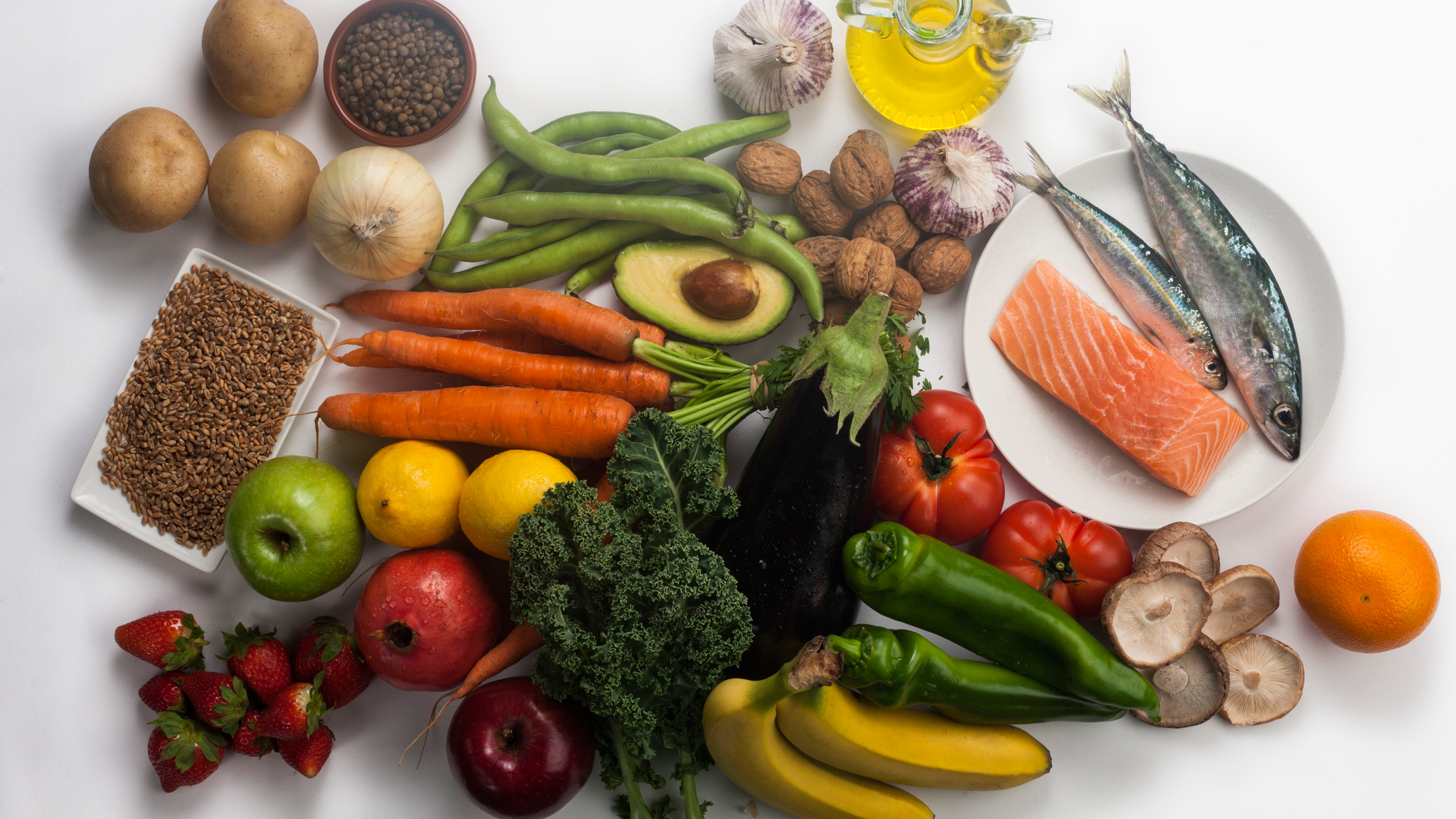Nutrition: How a Mediterranean diet helps weight loss and improves your brain
The Mediterranean diet (with loads of olive oil, vegetables and fish) helps transform your body and your brain


We're big fans of the Mediterranean diet here at Fit&Well. The diet plan usually consists of lots of healthy vegetables, pulses, oily fish and olive oils. It's very light on processed "white" grains and red meats, which in general keeps things very healthy. The diet is incredibly rich in omega-3 and other beneficial fatty acids, which (as those who take our best fish oil supplements know) have phenomenal anti-inflammatory and other health benefits.
The lack of processed foods and "white" carbs in the Med diet has led to some well-known weight loss benefits: for example, one study published in the Annals of Internal Medicine found the diet plan helped manage body weight, blood pressure, body fat levels and blood sugar, in addition to inflammation. It's a flexible, easy-to-follow diet plan, which makes it extremely popular.
However, scientists have recently found yet another benefit to add to the Med diet's already very convincing case. Researchers from the University of Edinburgh sought to find out whether a Mediterranean diet, particularly one low in meat and rich in leafy greens, could protect our brain functions later in life.

The scientists studied more than 500 people aged 79, and found those who adhered to a green Mediterranean diet were sharper thinkers. There was no link between Med diet followers and overall brain health, which was tested by scanning participants' grey matter. However, the Med dieters performed better on cognitive tasks than participants that followed a typical Western diet.
Dr Janie Corley, of the University of Edinburgh's School of Philosophy, Psychology and Language Sciences, said: "Eating more green leafy vegetables and cutting down on red meat might be two key food elements that contribute to the benefits of the Mediterranean-style diet.
"In our sample, the positive relationship between a Mediterranean diet and thinking skills is not accounted for by having a healthier brain structure, as one might expect. Though it's possible there may be other structural or functional brain correlates with this measure of diet, or associations in specific regions of the brain, rather than the whole brain, as measured here."
So we don't know exactly what's causing this cognitive improvement, but the correlation is strongly positive. As well as oily fish, the anti-inflammatory effect of the diet can be supported with our best supplements for joints, while you can whizz up some of the green vegetables into a satisfying smoothie with our best blenders choices.
Get the Fit&Well Newsletter
Start your week with achievable workout ideas, health tips and wellbeing advice in your inbox.
Matt Evans is an experienced health and fitness journalist and is currently Fitness and Wellbeing Editor at TechRadar, covering all things exercise and nutrition on Fit&Well's tech-focused sister site. Matt originally discovered exercise through martial arts: he holds a black belt in Karate and remains a keen runner, gym-goer, and infrequent yogi. His top fitness tip? Stretch.
-
 A Pilates instructor says this is the beginner-friendly core exercise everyone should try
A Pilates instructor says this is the beginner-friendly core exercise everyone should tryForget crunches, this is the perfect foundation move
By Alice Porter
-
 Prevent poor posture and release tension from sitting down with these four simple stretches from a yoga instructor
Prevent poor posture and release tension from sitting down with these four simple stretches from a yoga instructorThe daily poses he swears by, no matter what
By Alice Porter